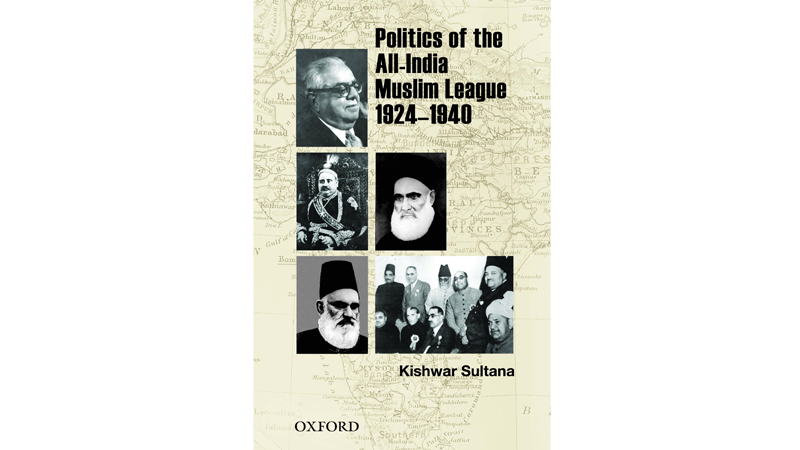OUP publishes books detailing Pak history
Following are details of a few academic books pertaining to history, strategic studies, and Pakistan studies published by the Oxford University Press (OUP).


Linus Strothmann
The book gives an account of various developments associated with the Shrine of Data Ganj Bakhsh in Lahore, Pakistan, which is one of South Asia’s most important Sufi sites with a particular focus on the relationship between the state, public space, the secular, and the religious. This study fills a lacuna in the study of Sufism in South Asia particularly in Pakistan.


Kishwar Sultana
This book outlines a narrative account of Jinnah’s role in the political development of the Muslim League during the years 1924–1940. The narrative draws on new sources in order to challenge some of the interpretations of key developments such as the 1937 Jinnah–Sikander Pact and to draw out the significance of Jinnah’s role in the organization of the Muslim League. The book also discusses the evolution of the All-India Muslim League through the years from its birth to the Pakistan Resolution in 1940.
M Rafique Afzal
This work presents an exhaustive study of the growth and rise of the leading Muslim political party of the South Asian Subcontinent—the All-India Muslim League. The book encompasses the organizational structure of the Muslim League, its financial and propaganda resources, its mobilization strategies, and the different aspects of its struggle. Based on the archives of Muslim League and other contemporary primary sources, the author gives a comprehensive account of the remarkable phenomenon of a Muslim political party that led the movement for the creation of Pakistan.
Edited by Pervez Hoodbhoy
Authored by scientists from both sides of the Pakistan-India divide, the book fearlessly explores tabooed, but urgent, nuclear issues that range from the political and strategic to semi-technical ones. The book examines Pakistan’s changing strategic nuclear objectives, the Kargil conflict, and the fact that ownership of the bomb is now claimed by Islamic political parties. The issue of the safety and security of Pakistan’s nuclear arsenal is considered in the background of an ideological divide within the military.
MoonisAhmar
The book aims to examine the vision for Pakistan perceived by the founders of the country. Be it sectarian, ethnic or resource-based conflicts, the lack of a secular approach by various regimes of Pakistan since 1947 until today has augmented the sense of insecurity and instability in the country. The book argues that religious militancy and violence can be successfully dealt with by introducing a secular order. This research aims to develop an understanding of a secular approach and mindset in order to unleash the process of conflict management in Pakistan based on the lessons which can be learned from the experiences of European, Turkish, Indian, and Indonesian experiments with secularism.
Published in Daily Times, November 27th 2018.
Recent Posts
- Pakistan
PTI conveys grievances to CJP in rare meeting
The Pakistan Tehreek-e-Insaf (PTI) has complained to Chief Justice of Pakistan (CJP) Yahya Afridi that…
- Pakistan
Six militants killed in KP, four in Balochistan
Security forces on Friday killed at least six terrorists during an intelligence-based operation in Khyber…
- Pakistan
COAS visits UK’s Warminster and Larkhill garrisons
Army Chief, General Asim Munir, visited the Warminster and Larkhill garrisons in the United Kingdom…
- Pakistan
Sindh govt to award Oxford University scholarships to six students
The Government of Sindh, in collaboration with the Oxford Pakistan Programme (OPP), has announced the…
- Pakistan
‘Magnificent Punjab’: CM Maryam to launch mega tourist project
Chief Minister Punjab Maryam Nawaz Sharif has directed the authorities concerned to launch a mega…
- Pakistan
Bilawal calls out West’s hypocrisy over Pakistan’s nuclear program
Putting his weight behind a democratic future for the country, Pakistan Peoples Pakistan (PPP) Chairman…
Leave a Comment